#learning chinese
Explore tagged Tumblr posts
Text
(Languages taken from the top 10 foreign languages learned on Duolingo in 2024.)
I would like to bring your attention to two fundraisers that are near and dear to my heart.
@elhamhamdan-gaza is a young woman trying to survive in Gaza with her family. She was a top student at university until October 2023, when she and her family were displaced from their home in Khan Younis and forced to flee to Rafah. After the invasion in Rafah, they returned to their home in Khan Younis only to find it burned. They had no choice but to live in it. Elham and her family desperately need funds for blankets and clothes, because winter is here and nights in Gaza are very cold right now.
Elham's campaign is very low on funds! So far they have only been able to raise £594 and they desperately need more support. Please donate to them if you are able, and share this post and campaign with as many people as you can.
This campaign was verified by the Butterfly Effect Project (instagram) and is number 1180 on their spreadsheet, which you can access through the link on their instagram profile.
You can contribute to Elham's campaign by clicking on the link below:
Secondly, @drdarine is a young woman who is a medical student in Gaza. Despite being displaced and suffering hardships we can only imagine, Darine is continuing her studies and helping out others in the refugee camps and shelters in southern Gaza. Her family consists of seven people, one of them being my friend @dawoudi who is selflessly and unfailingly helping many other families in Gaza by verifying their fundraisers and promoting them on Tumblr. Everyday I see more campaigns added that he has verified, providing an important service to the many families in Gaza that need our help.
Darine's family has been fundraising since February, which is almost ten months! Despite that, they have only been able to raise $5,765, 19% of their goal. Progress on their campaign is extremely slow, often needing to wait multiple days for another donation to come in. We can do better than that.
This campaign was vetted by @gazavetters, and is number 15 on their spreadsheet, which you can find in the pinned post on their profile.
You can contribute to Darine's campaign by clicking on the link below:
Please support these fundraisers! Thank you!
Tagging for reach, let me know if you want me not to tag you in the future
@commissions4aid-international @funds4gaza @a-shade-of-blue @dlxxv-vetted-donations @kyra45-helping-others
@northgazaupdates2 @bilal-salah0 @imjustheretotrytohelp @devilofthepit @ankle-beez
@lukewarm-lesbian @wellwaterhysteria @appsa @qattdraws @laughteronsilverwings
@felixander-official @nabulsi @mukkie @oursapphirestars @fruitwoodmac
@comrademango @sunflowersmoths @mindchalice @battleteacake @girlinafairytale
#languages#duolingo#learning languages#learning english#learning french#learning german#learning spanish#learning Japanese#learning korean#learning italian#learning Chinese#english#spanish#french#german#japanese#korean#italian#chinese#fundraising#mutual aid#gfm#vetted fundraisers#vetted by butterflyeffect.project (instagram)#no 1180 on their spreadsheet#vetted by gazavetters#no 15 on their spreadsheet#this campaign is very low on funds!
533 notes
·
View notes
Text

These are the apps and links I currently have on my phone to study Chinese:
SuperChinese: my main study resource. There are currently 7 levels, level 7 (still incomplete, they are still slowly adding lessons to it) being HSK 5 stuff. Each lesson has vocabulary, grammar and a short dialogue where those are used in context (I love context). It has a few free lessons in the lower levels but after that you have to buy a subscription. There are many sales though. When I was a beginner I used HelloChinese instead, which has more free content, and switched to SuperChinese when I finished all the free content there. It also has social network features and chat rooms I don't use.
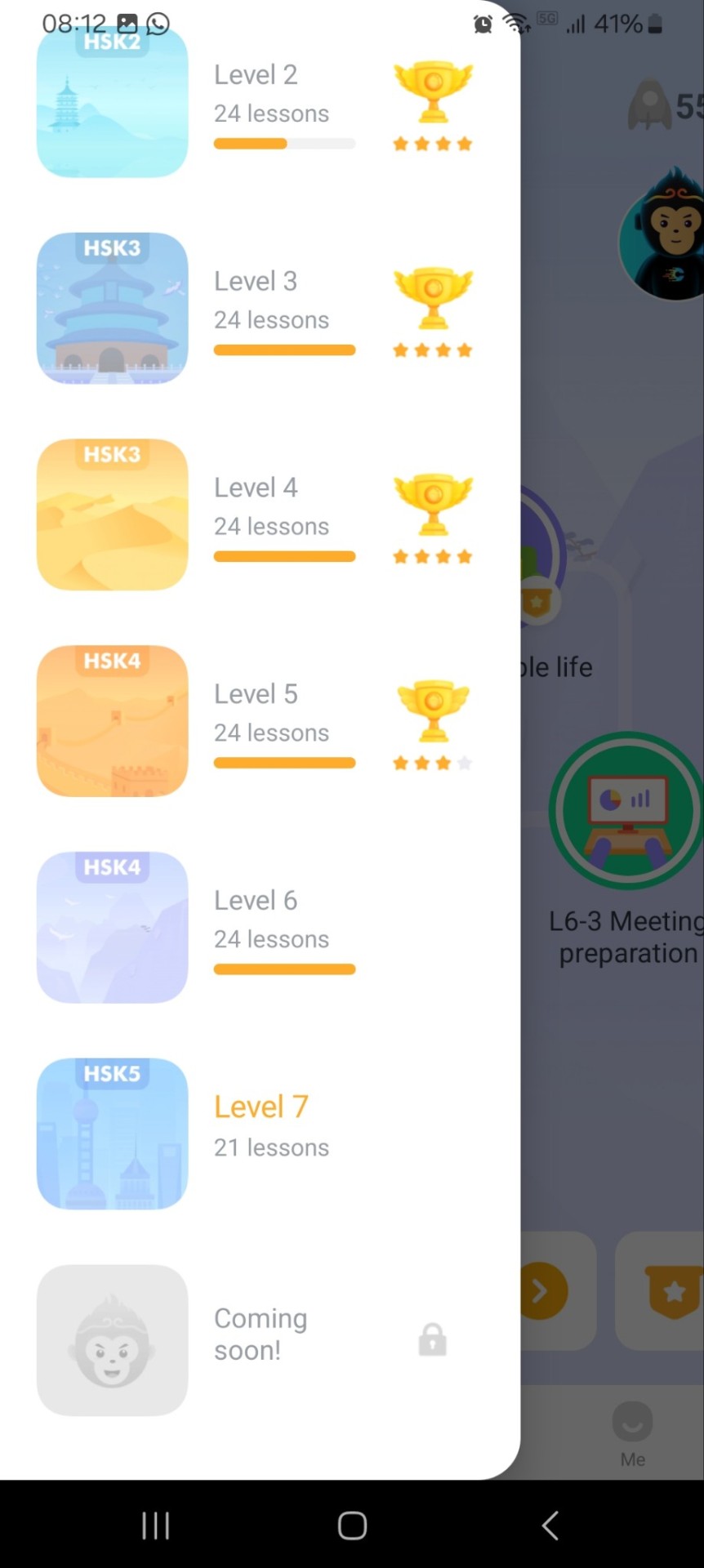
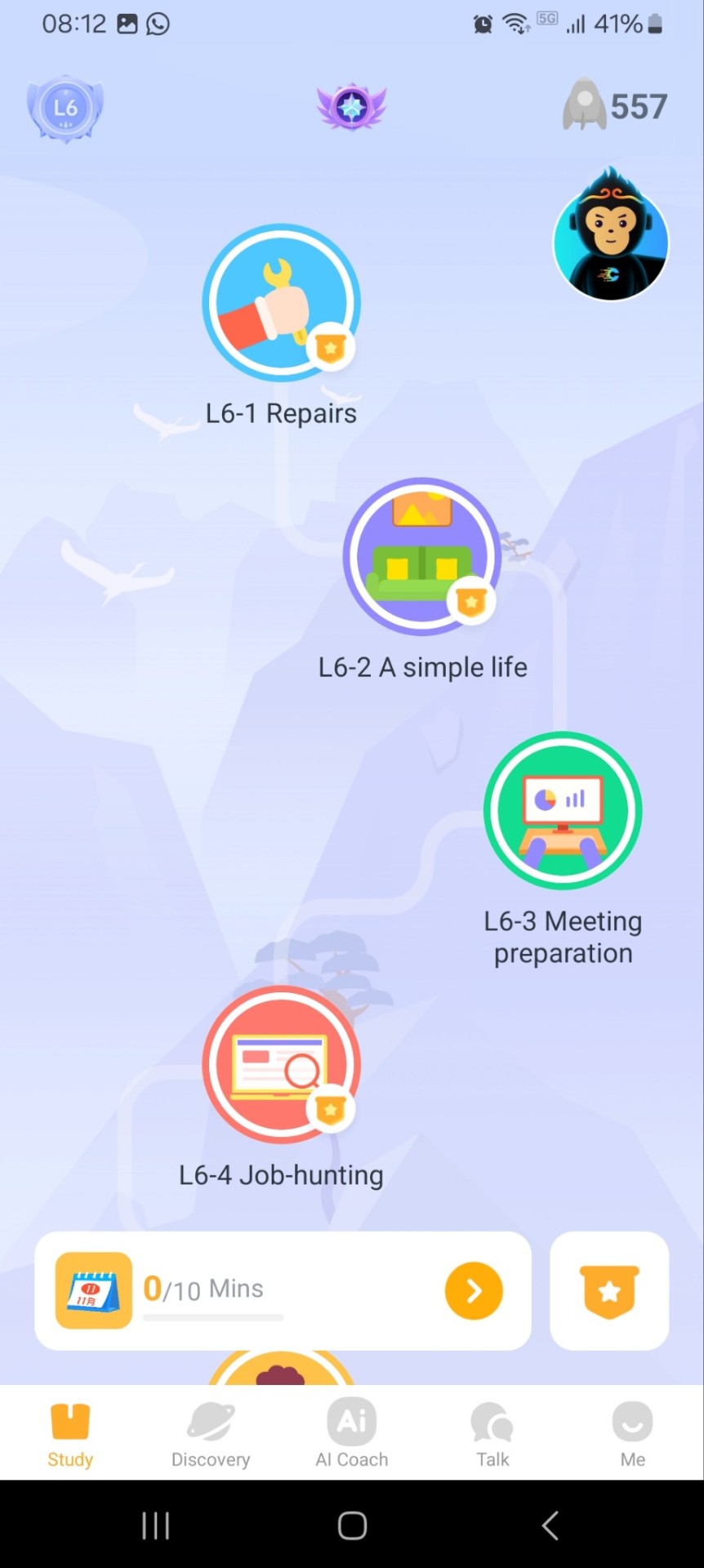
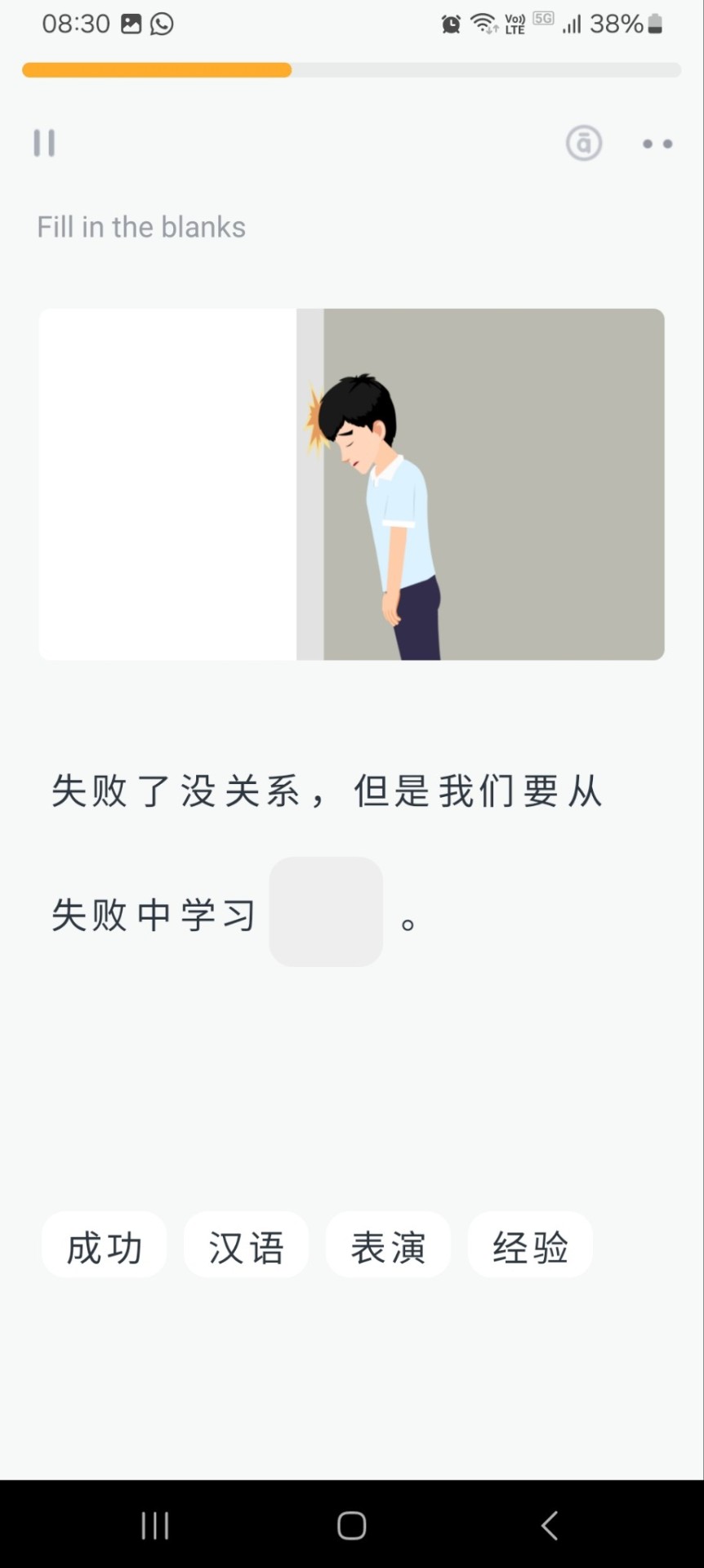

TofuLearn is like a flashcard app with many pre-made decks (you can also create your own on their website and import decks from Anki) and the option to practice writing hanzi. Anki didn't work for me, but I find Tofu very helpful. Practicing writing helps me with character recognition, and it also helps me remember the tones thanks to the audio in the pre-made HSK decks.
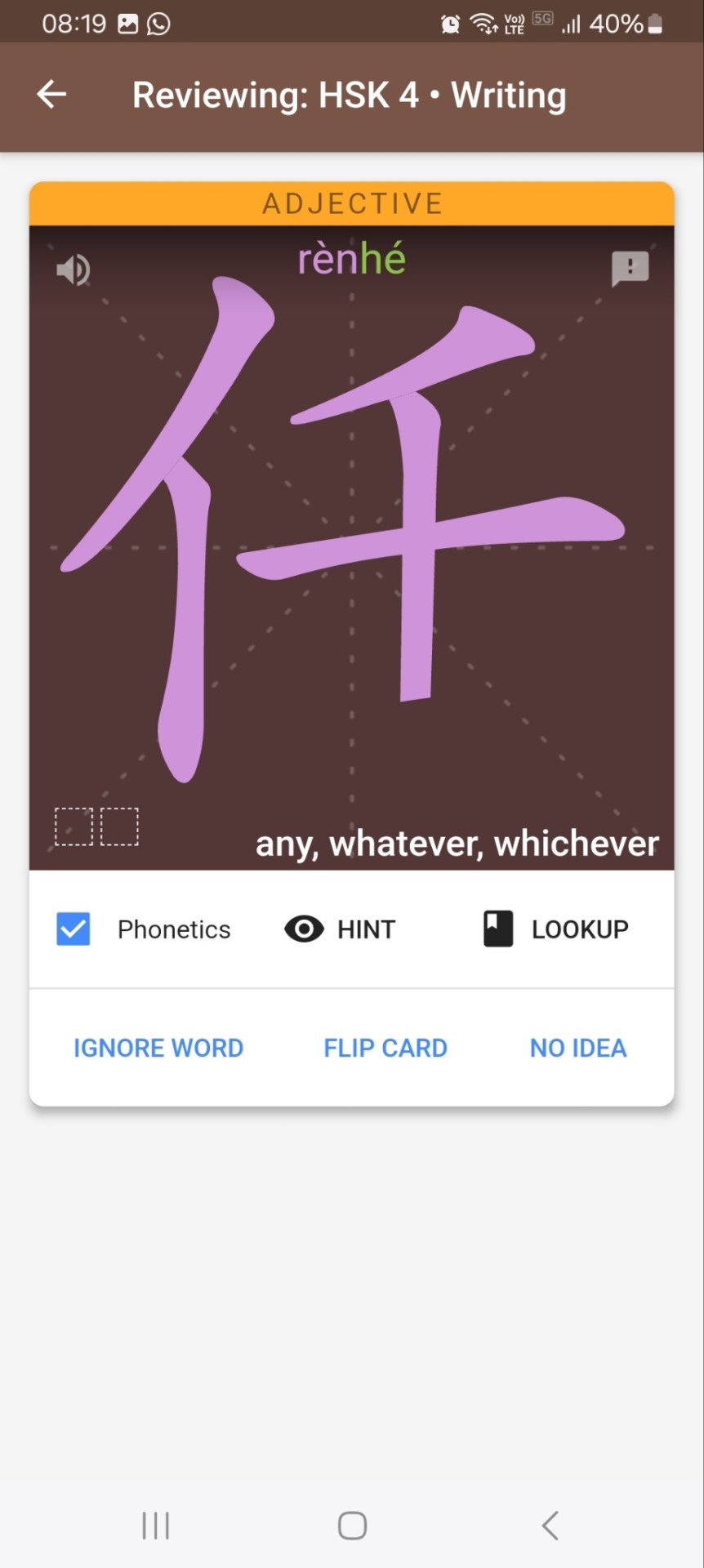
Dot is a reading app with new texts being added every day. It used to be completely free, which actually seemed too good to be true, and then they put practically everything behind a paywall and very strict limits for free users. After a couple of months they made it a little less restricted though - we still can't choose the articles but we can read as many as we want as long as we do the vocabulary exercises after each article (plus, during the Spring Festival, they made all articles available for free for 3 days and we could save the ones we were interested in to read later). It follows the new, not-yet-implemented (and harder) HSK levels, so you should start one or two levels below yours and if the texts are too easy move up.
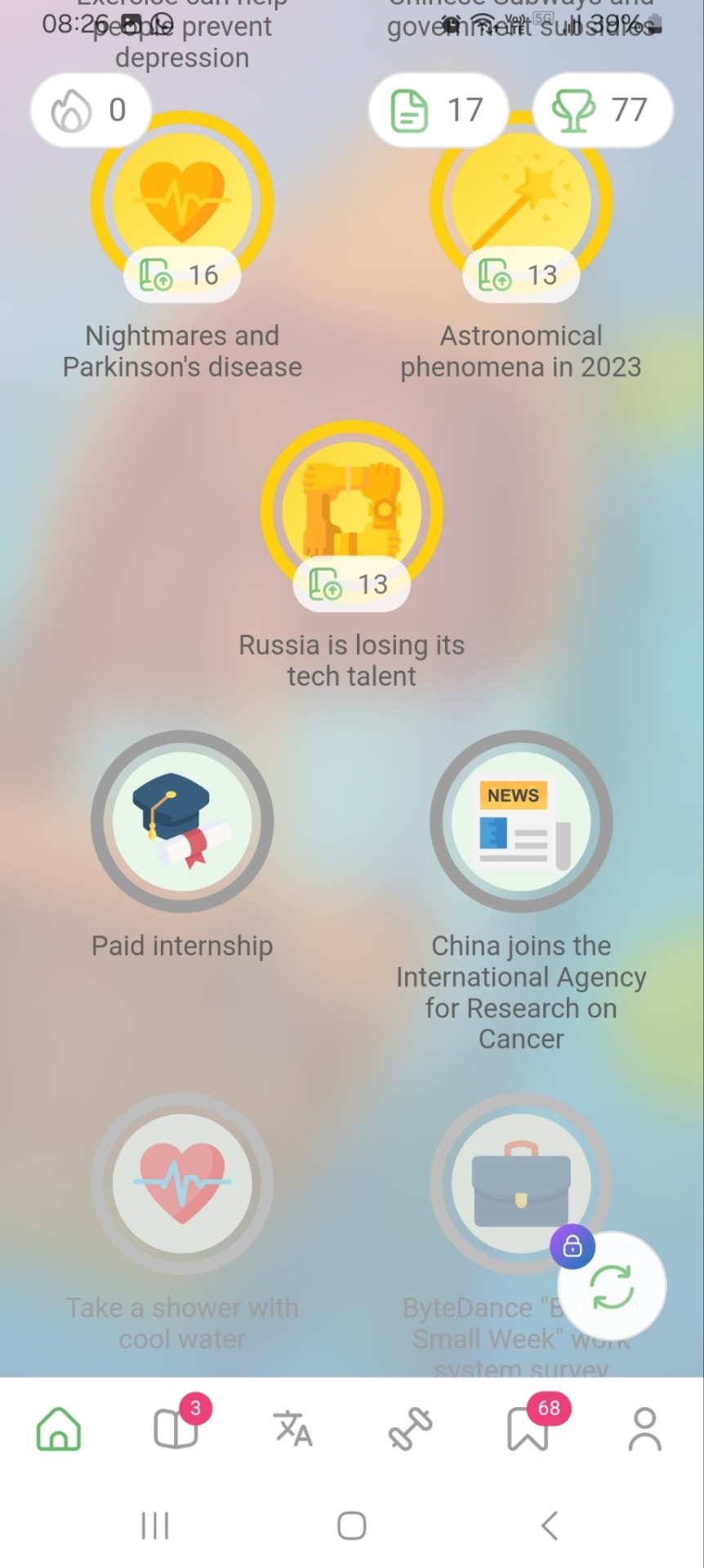
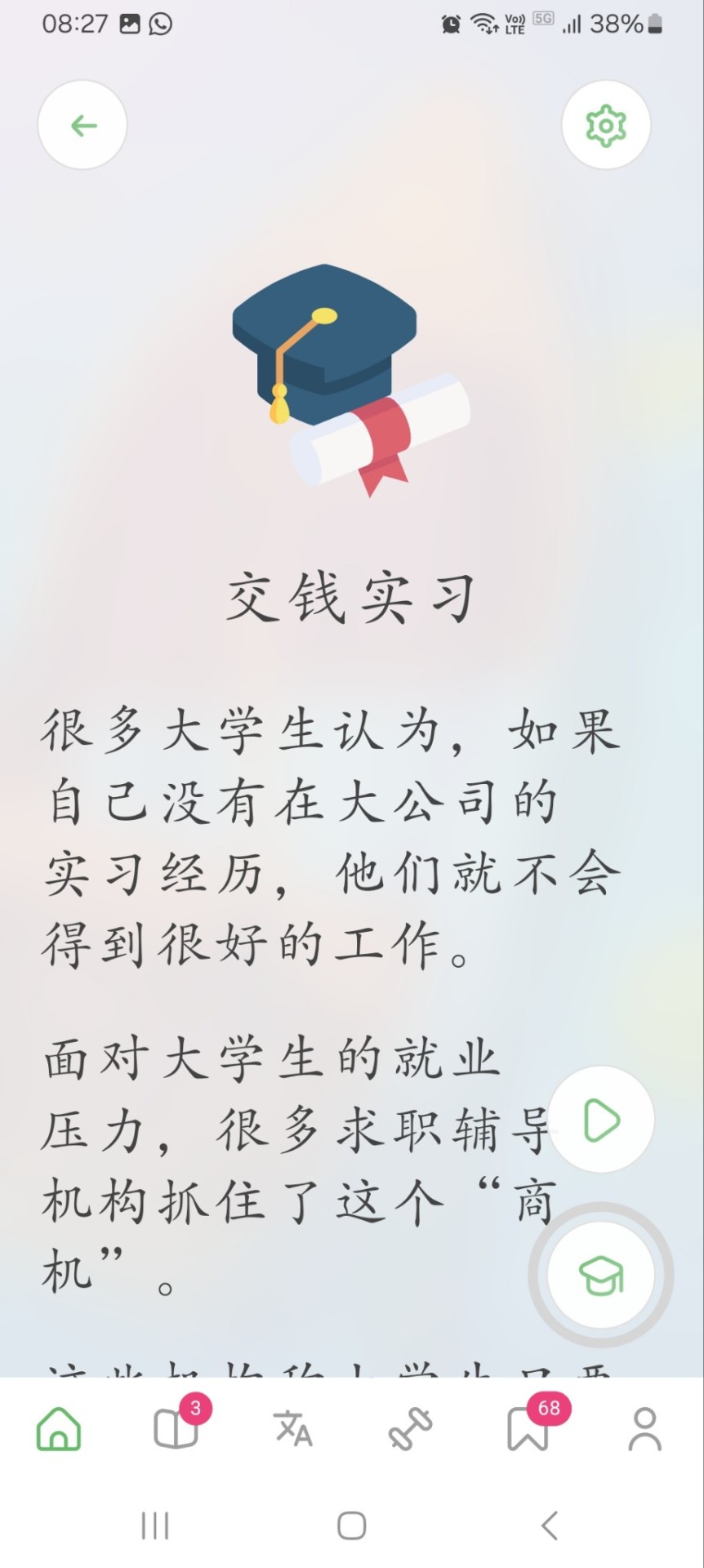
Google Translator: not the best but helpful when I need to translate whole sentences, plus I can point my camera or open an image and it translates writing.
Pleco: best Chinese to English dictionary.
Stroke Order: not an app but a website, does what it says in the tin: shows stroke order for a specific character.
YouGlish: also a website, you can put a word or phrase and it shows videos where people say that word/phrase. Very cool.
Todaii is a graded news app that has only two levels: easy and hard. I'm around level HSK4 and the "easy" level is quite hard though (but I admit reading is my nemesis).
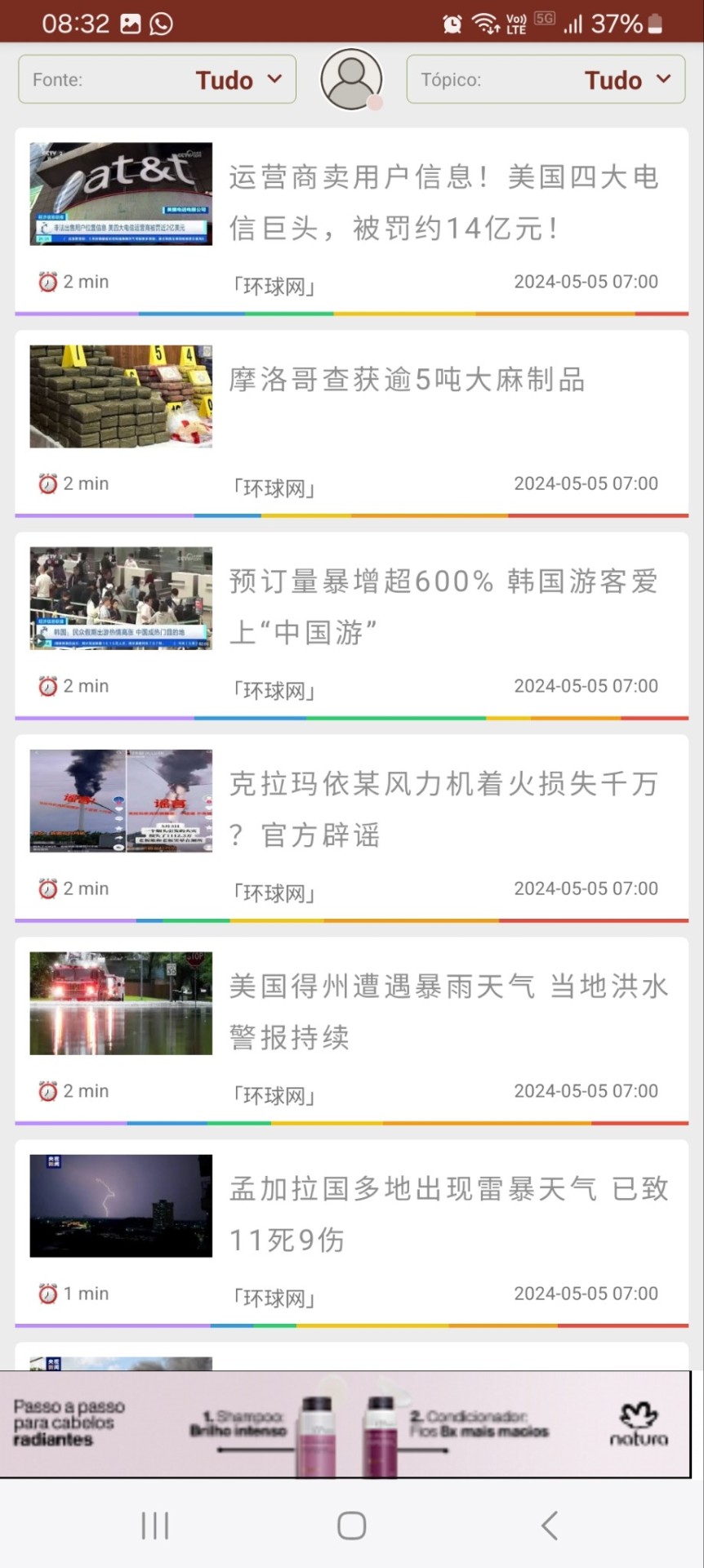
I also use YouTube and Spotify a lot.
#personal#resources#langblr#language learning#learning chinese#chinese langblr#chinese language#mandarin#中文
401 notes
·
View notes
Text
75 essential single-character verbs (单字动词)

When I started consuming more native Chinese content, I quickly discovered an area in which my knowledge was lacking: single-character verbs. In my experience, it’s very easy to focus on learning words consisting of two or more characters and overlook single-character words.
Driven by curiosity, I went through my Anki deck (and also wracked my brain) to generate a list of characters/words that I have learned over the past couple years (roughly). Then I selected 75 verbs that are fairly common and important to know. They skew towards intermediate and advanced vocabulary.
Definitions are from MDBG. For characters with additional meanings that I am not yet familiar with, I have bolded the meanings I want to share.
(1) 抢 qiǎng - to fight over / to rush / to scramble / to grab / to rob / to snatch
(2) 救 jiù - to save / to assist / to rescue
(3) 扶 fú - to support with the hand / to help sb up / to support oneself by holding onto something / to help
(4) 催 cuī - to urge / to press / to prompt / to rush sb / to hasten sth / to expedite
(5) 夹 jiā - to press from either side / to place in between / to sandwich / to carry sth under armpit / wedged between / between / to intersperse / to mix / to mingle / clip / folder / Taiwan pr. [jia2]
(6) 咬 yǎo - to bite / to nip
(7) 砸 zá - to smash / to pound / to fail / to muck up / to bungle
(8) 毁 huǐ - to destroy / to ruin / to defame / to slander
(9) 嚷 rǎng - to shout / to bellow / to make a big deal of sth / to make a fuss about sth
(10) 塞 sāi - to stop up / to squeeze in / to stuff / cork / stopper
(11) 贪 tān - to have a voracious desire for / to covet / greedy / corrupt
(12) 拆 chāi - to tear open / to tear down / to tear apart / to open
(13) 掏 tāo - to fish out (from pocket) / to scoop
(14) 跪 guì - to kneel
(15) 摘 zhāi - to take / to borrow / to pick (flowers, fruit etc) / to pluck / to select / to remove / to take off (glasses, hat etc)
(16) 拎 līn - to lift up / to carry in one's hand / Taiwan pr. [ling1]
(17) 扛 káng - to carry on one's shoulder / (fig.) to take on (a burden, duty etc)
(18) 拽 zhuài - to pull / to tug at (sth)
(19) 愣 lèng - to look distracted / to stare blankly / distracted / blank / (coll.) unexpectedly / rash / rashly
(20) 搂 lǒu - to hug / to embrace / to hold in one's arms
(21) 垮 kuǎ - to collapse (lit. or fig.)
(22) 撑 chēng - to support / to prop up / to push or move with a pole / to maintain / to open or unfurl / to fill to bursting point / brace / stay / support
(23) 甩 shuǎi - to throw / to fling / to swing / to leave behind / to throw off / to dump (sb)
(24) 围 wéi - to encircle / to surround / all around / to wear by wrapping around (scarf, shawl)
(25) 愁 chóu - to worry about
(26) 插 chā - to insert / stick in / pierce / to take part in / to interfere / to interpose
(27) 漏 lòu - to leak / to divulge / to leave out by mistake / waterclock or hourglass (old)
(28) 披 pī - to drape over one's shoulders / to open / to unroll / to split open / to spread out
(29) 歇 xiē - to rest / to take a break / to stop / to halt / (dialect) to sleep / a moment / a short while
(30) 抄 chāo - to make a copy / to plagiarize / to search and seize / to raid / to grab / to go off with / to take a shortcut / to make a turning move / to fold one's arms
(31) 哼 hēng - to groan / to snort / to hum / to croon / humph!
(32) 哄 hǒng - to deceive / to coax / to amuse (a child)
(33) 啃 kěn - to gnaw / to nibble / to bite
(34) 眯 mī - to narrow one's eyes / to squint / (dialect) to take a nap
(35) 趴 pā - to lie on one's stomach / to lean forward, resting one's upper body (on a desktop etc) / (Tw) percent
(36) 揍 zòu - to hit / to beat (sb) / (coll.) to smash (sth)
(37) 蹭 cèng - to rub against / to walk slowly / (coll.) to freeload
(38) 凑 còu - to gather together, pool or collect / to happen by chance / to move close to / to exploit an opportunity
(39) 敲 qiāo - to hit / to strike / to tap / to rap / to knock / to rip sb off / to overcharge
(40) 滑 huá - to slip / to slide / slippery / smooth / sly / slippery / not to be trusted
(41) 碎 suì - to break down / to break into pieces / fragmentary
(42) 盯 dīng - to watch attentively / to fix one's attention on / to stare at / to gaze at
(43) 塌 tā - to collapse / to droop / to settle down
(44) 背 bēi - to be burdened / to carry on the back or shoulder 背 bèi - the back of a body or object / to turn one's back / to hide something from / to learn by heart / to recite from memory / unlucky (slang) / hard of hearing
(45) 数 shǔ - to count / to count as / to regard as / to enumerate (sb's shortcomings)
(46) 按 àn - to press / to push / to leave aside or shelve / to control / to restrain / to keep one's hand on / to check or refer to / according to / in the light of / (of an editor or author) to make a comment
(47) 压 yā - to press / to push down / to keep under (control) / pressure
(48) 亲 qīn - parent / one's own (flesh and blood) / relative / related / marriage / bride / close / intimate / in person / first-hand / in favor of / pro- / to kiss / (Internet slang) dear
(49) 补 bǔ - to repair / to patch / to mend / to make up for / to fill (a vacancy) / to supplement
(50) 舔 tiǎn - to lick / to lap
(51) 拼 pīn - to piece together / to join together / to stake all / adventurous / at the risk of one's life / to spell
(52) 埋 mái - to bury
(53) 抖 dǒu - to tremble / to shake out / to reveal / to make it in the world
(54) 涂 tú - to apply (paint etc) / to smear / to daub / to blot out / to scribble / to scrawl / (literary) mud / street
(55) 抹 mǒ - to smear / to wipe / to erase / classifier for wisps of cloud, light-beams etc
(56) 吞 tūn - to swallow / to take
(57) 拦 lán - to block sb's path / to obstruct / to flag down (a taxi)
(58) 露 lòu - to show / to reveal / to betray / to expose 露 lù - dew / syrup / nectar / outdoors (not under cover) / to show / to reveal / to betray / to expose
(59) 滚 gǔn - to boil / to roll / to take a hike / Get lost!
(60) 扣 kòu - to fasten / to button / button / buckle / knot / to arrest / to confiscate / to deduct (money) / discount / to knock / to smash, spike or dunk (a ball) / to cover (with a bowl etc) / (fig.) to tag a label on sb / (Tw) (loanword) code
(61) 夸 kuā - to boast / to exaggerate / to praise
(62) 挥 huī - to wave / to brandish / to command / to conduct / to scatter / to disperse
(63) 求 qiú - to seek / to look for / to request / to demand / to beseech
(64) 吸 xī - to breathe / to suck in / to absorb / to inhale
(65) 响 xiǎng - echo / sound / noise / to make a sound / to sound / to ring / loud / classifier for noises
(66) 擦 cā - to wipe / to erase / rubbing (brush stroke in painting) / to clean / to polish
(67) 踩 cǎi - to step on / to tread / to stamp / to press a pedal / to pedal (a bike) / (online) to downvote
(68) 撕 sī - to tear
(69) 扫 sǎo - to sweep
(70) 锁 suǒ - to lock / to lock up / a lock (CL:把)
(71) 扎 zhā - to prick / to run or stick (a needle etc) into / mug or jug used for serving beer (loanword from "jar")
(72) �� zhuàng - to knock against / to bump into / to run into / to meet by accident
(73) 追 zhuī - to chase / to pursue / to look into / to investigate / to reminisce / to recall / to court (one's beloved) / to binge-watch (a TV drama) / retroactively / posthumously
(74) 抽 chōu - to draw out / to pull out from in between / to remove part of the whole / (of certain plants) to sprout or bud / to whip or thrash
(75) 删 shān - to delete
#vocab list#chinese#mandarin#mandarin chinese#chinese language#studyblr#langblr#language study#learning languages#language learning#chinese studyblr#chinese langblr#mandarin studyblr#mandarin langblr#study chinese#study mandarin#learn chinese#learn mandarin#studying chinese#learning chinese#studying mandarin#learning mandarin#chinese vocab#mandarin vocab#foreign languages#language#languages#language blog#languageblr#language stuff
809 notes
·
View notes
Text
小王子 The Little Prince ✎ 生詞 002

著: 安東尼・聖修伯里 / 譯: 墨丸 生詞 002 (第一章 Chapter 01)
描繪 (描绘) miáo huì — describe, depict, portray
長達 (长达) cháng dá — up to, to extend as long as
睡眠 (睡眠) shuì mián — sleep
歷險 (历险) lì xiǎn — go through adventures, experience dangers
叢林 (丛林) cóng lín — jungle, forest
冒險 (冒险) mào xiǎn — take risks or chances
幻想 (幻想) huàn xiǎng — illusion, fantasy
生平 (生平) shēng píng — all one's life, ever since one's birth
傑作 (杰作) jié zuò — masterpiece
巨蟒 (巨蟒) jù mǎng — python
吃飽喝足 chī bǎo hē zú —eat and drink one's fill
無所謂 wú suǒ wèi — indifferent, doesn't matter
#小王子#the little prince#langblr#studyblr#chinese langblr#mandarin langblr#chinese#mandarin chinese#learning languages#budinggou#learning chinese#chinese vocabulary#chinese vocab#mandarin vocab#study chinese#taiwanese#traditional mandarin
42 notes
·
View notes
Text



Updates on Learning Mandarin Chinese 6/∞: 课本和可理解输入
Currently working my way through NPCR4 (just started the second chapter!) and balancing it off with some comprehensible input videos in Chinese.
I'm loving the fact that comprehensible input has become The Thing in language learning circles in the past couple of years, because it's caused a veritable explosion of comprehensible input videos on Youtube. I recently found out about Lazy Chinese - Comprehensible Input, and I'm really enjoying her videos!
youtube
🎵 曹格 Gary Chaw 【一 One】
#mandarin langblr#langblr#chinese langblr#learning mandarin#learning chinese#zhongwen#updates on learning mandarin
33 notes
·
View notes
Text

GUYS THIS HAS BEEN THE BEST WEEK OF MY LIFE I SWEAR. I THOUGHT THEY WOULDNT LET ME KNOW FOR A WHIIILE OMGOMG IM GOING TO TAIWAN
#studyblr#study blog#langblr#langblog#language learning#languageblr#chinese langblr#mandarin langblr#study abroad#taiwan#chinese language#mandarin chinese#mandarin studyblr#studyblr community#chinese studyblr#learning chinese#learn chinese#mandarin study#learn mandarin#studyabroad#exchange student#student life#uniblr#university#college
116 notes
·
View notes
Text
in like svsss fanfictions when characters refer to themselves as 'this one' what exactly are they saying? Like the hanzi, the pinyin, etc.
#chinese language#learning chinese#learning languages#languages#learning mandarin#foreign languages#Chinese#mandarin#mandarin langblr#hanzi#pinyin#help#svsss#svsss fandom#svsss fanfiction#moshang#luo binghe#shen qingqiu#shen jiu#scum villian self saving system#scum villain
90 notes
·
View notes
Text
Vocabulary List #58
夕 [xī] - evening
名 [míng] - name
千 [qiān] - a thousand
舌 [shé] - tongue
不 [bù] - no; not
的 [de] - belonging to
大 [dà] - big
又 [yòu] - again
粥 [zhōu] - congee
茶 [chá] - tea
橙子 [chéngzi] - orange (the fruit)
子 [zi] - child; noun suffix
了 [le] - completed action marker
错了 [cuòle] - wrong
对了 [duìle] - correct; oh, by the way...
土 [tŭ] - earth; dust
#langblr#language#languages#chinese#chinese langblr#learn chinese#learning chinese#vocabulary list#vocab list#chinese vocab list#memrise
59 notes
·
View notes
Text
Speak DECENT CHINESE in 4 months - 8 easy tips
______
1. Have someone to guide you to get good pronunciation habits. It is almost impossible to re-learn bad habits later so make sure you get your pronunciation right from the beginning. I mean the pronunciation of the sounds, not the tones. Tones take more time to get used to and you can't rush it - but try the best you can. Some tutors don't bother too much about the pronunciation so make sure you find someone who is strict about that, you will be grateful later. Also get confident in pinyin, you will need it.
2. Understand the composition of the sentences. The word order is super easy and it stays the same all the time (the question and informative sentences have the same word order). I have a formula for the word order but I won't reveal it here, it is one of the secrets I keep for my students and people who use my materials.
3. Understand that there are no tenses in the sense we think about them in English and other languages. Learn to express future, potential future, finished action, change of state, experience in the past and circumstances of the event. See the difference between action verbs and verbs of state.
4. Learn to use modal verbs and conjuctions.
5. Build usable vocabulary based on the fact that everything in Chinese is interconnected.
6. Understand 就, 才,的 and 得
7. Don't learn grammar rules and words separately. Learn functional practical sentences that will serve you as examples of the grammar structures (then you just need to change the words in these sentences).
8. Develop your listening skills - that is very important. For that there are Youtube channels and podcasts on Spotify (and in my materials the audio part also plays an important role). You can listen to Chinese radio stations just to get the feeling of the language.
______
After 3-4 months you should feel pretty confident in normal conversations if you study regularly under competent guidance.
______
R-evolutionary learning materials and resources: https://chineseffect.com
MAGIC PLAYBOOK for beginners
#learn chinese#learn mandarin#chinese langblr#mandarin langblr#edublr#mandarin#chinese#mandarin edublr#langblr#chinese vocabulary#mandarin chinese#chinese edublr#learning mandarin#learning chinese#study chinese#mandarin vocabulary#study mandarin#汉语#chinese studyblr#beginners chinese#chinese for beginners#learning tips#chinese tips#mandarin tips
305 notes
·
View notes
Text
牙刷 (yáshuā) - toothbrush
刷牙 (shuāyá) - to brush the teeth
Chinese is so intuitive
#langblr#language learning#chinese langblog#langblog#languages#love languages#chinese langblr#chinese language#learning languages#learning chinese#studyblr
9 notes
·
View notes
Text

80 notes
·
View notes
Text
My latest obsession: The XX子 pattern
So what is XX子? Well I made that term up because I didn't know what else to use. As for what it means, Chinese has many nouns that end in 子, so they are of the form X子. Sometimes the character X can also be a verb. So in some cases, you can actually say you Xed an X子, and it will make perfect sense!
种种子 zhòng zhǒngzi 种 zhòng - to plant / to grow / to cultivate 种子 zhǒngzi - seed
扇扇子 shān shànzi 扇 shān - to fan 扇子 shànzi - fan
盖(上)盖子 gài gàizi 盖 gài - to cover 盖子 gàizi - cover / lid
扣(上)扣子 kòu kòuzi 扣 kòu - to fasten / to button 扣子 kòuzi - button
包包子 bāo bāozi 包 bāo - to wrap 包子 bāozi - bun / bao
钉钉子 dìng dīngzi 钉 dìng - to nail / to pin 钉子 dīngzi - nail
辫辫子 biàn biànzi 辫 biàn - to plait / to braid 辫子 biànzi - plait / braid / pigtail
As you can see, sometimes the tone of character X is different...but I feel like that could be a whole other post. I'm "collecting" more of these, so if you can think of any, let me know! I looked for a list online but couldn't find anything.
#nerdy language stuff#chinese#mandarin#mandarin chinese#chinese language#studyblr#langblr#language study#learning languages#language learning#chinese studyblr#chinese langblr#mandarin studyblr#mandarin langblr#study chinese#study mandarin#learn chinese#learn mandarin#studying chinese#learning chinese#studying mandarin#learning mandarin#foreign languages#language#languages#language blog#languageblr#language stuff#chinese vocab#mandarin vocab
376 notes
·
View notes
Text

Yes! Yeeeeesssssssss! Finally!
I got my textbook, I got my dictionary and notebook, I've got my study guide. I checked out additional material from the library, it is so on.
13 notes
·
View notes
Text



Updates on Learning Mandarin Chinese 5/∞: 学习学习!
Last month, I read the book 《北京娃娃》 (2002; Beijing Doll) by 春树 (Chun Shu). Obviously, my Mandarin is nowhere near the level yet where I could read an entire book in Mandarin (although I AM planning to get there one day!), so I read it in Finnish translation. Not my new favourite book (perhaps I would have enjoyed it more back when I was a teenager), but an interesting depiction of turn of the millennium teen angst and rebellion all the same. Definitely made me want to read lots and lots more of Chinese lit in translation during the rest of the year to motivate me to keep studying.
In other news, I just started the 4th book in the New Practical Chinese Reader series 🎉 Full speed ahead!
🎵 自從 Since Chou 【花火 頹廢版 Fireworks Decadent Edition】
#mandarin langblr#langblr#chinese langblr#learning mandarin#learning chinese#zhongwen#updates on learning mandarin
27 notes
·
View notes
Text
looking for mandarin show/movie recommendations plsss
i currently watch street dance of china and used to watch the chuang series but i dont know how to branch away from the competition/survival shows
#studyblr#study blog#langblr#langblog#language learning#languageblr#chinese langblr#mandarin langblr#learning mandarin#chinese studyblr#learning chinese#learn chinese#chinese language#mandarin chinese#mandarin studyblr#mandarin study#learn mandarin#mandarin
92 notes
·
View notes
Text
Languageblr, studyblr, mandarinblr, please help!
So I've heard that when a third tone comes before another third tone you change the first into a rising tone - but what if you have three third tones in a row?
What if I were to say 我很好, is it 3 2 3? Or 2 3 3?
And what if I had four or more in a row, like 我也很好 - does that go 2 3 2 3?
I've googled, but I can't find anything other than rising before the first third, so any help would be appreciated 🙏
56 notes
·
View notes